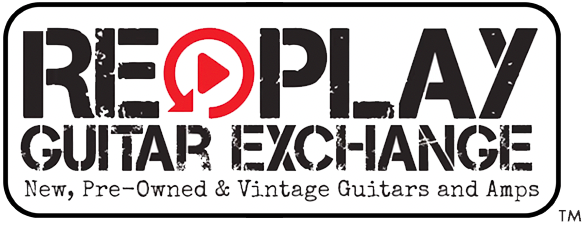Choosing the right guitar string can be daunting when there are so many string packs to choose from. Here is a written guide on guitar strings to help you decide what will be best for you:
Different types of guitars (electric, acoustic, and classical) require different types of strings. When choosing a string, you want to consider your playing style. Do you prefer fingerstyle, strumming, or picking? Depending on your answer, you might choose a different type of string for a different tone. The heavier gauge of the string typically results in a warmer tone. If you tune down from standard tuning, we recommend you pick a heavier string so that the string does not feel too flabby when you play it.
We are in Tampa Florida, where it constantly feels like walking into a sauna every time you go outside. Due to the high level of humidity, I recommend a coated guitar string. This will help keep the string from oxidizing quickly and can also double or even triple the life of the string. If you do not like to change guitar strings, a coated string is also a good choice. My current favorite brands for coated strings are D’Addario and Elixer. They may cost a little more, but the increase in lifespan makes up for it.
Acoustic Guitar
On some packs of acoustic guitar strings, you may notice that they say 80/20 or phosphor bronze. I get asked a lot what the differences are. 80/20 bronze is also called a brass string and is made of 80% copper and 20% zinc. Phosphor bronze is made of 85–95% copper, 4–10% tin, and 0.1–0.35% phosphorus. Generally, 80/20 has a bright sound with a dipped midrange and phosphor bronze strings are darker and warmer with a more pronounced midrange.
For beginner players, a light gauge string is a good choice because they will not be too hard on the fingers. If you are looking for a fuller sound, a medium or heavy gauge string would be a better choice as they have a darker and warmer tone. For fingerstyle players, a medium gauge may be a good choice because they are not hitting the string as hard but can still get a warm response from the guitar.
Electric Guitar
For a beginning guitar player, I recommend a 9-42 string gauge. These sized strings are easier to bend and a bit easier on the fingers. 10-46 is also a staple among guitar players and is probably the most sold here at the guitar shop. These are a little bit heavier but play great! Again, if you are tuning down, it might be a good idea to go for an 11-49 or higher string to keep the string from feeling too loose because the less tension on the strings, the more wiggle they have.
Classical Guitar
Classical guitars use nylon strings which can take a little bit of time to acclimate after putting on a fresh set of strings. They may keep going out of tune, but it is important to keep bringing them to correct pitch and eventually they will stay. Normal tension is recommended for beginning classical players, but a hard tension has more clarity and projection.
Ultimately, the best strings for you will depend on your personal preferences and playing style. Experimenting with different brands and gauges can help you find the perfect match for your guitar and playing style because there is no right answer! Try them all out!
-Cliff Hanger









